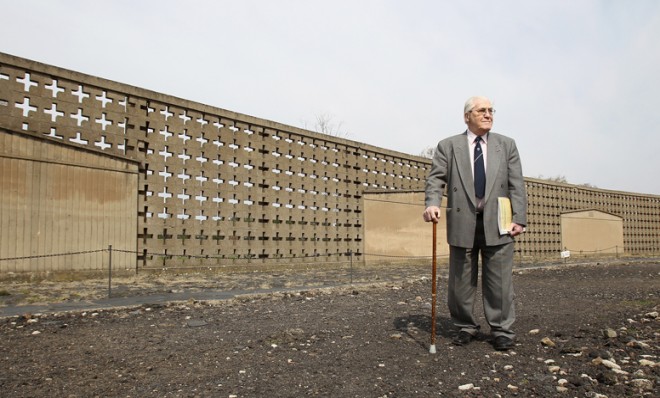How trauma could lead to a longer life
New research suggests the emergence of a phenomenon known as post-traumatic growth

A free daily email with the biggest news stories of the day – and the best features from TheWeek.com
You are now subscribed
Your newsletter sign-up was successful
Perhaps no medical condition has quite defined the 9/11 era as post-traumatic stress disorder, which shot to national prominence as shell-shocked veterans began returning home from Iraq and Afghanistan. PTSD has seeped into the cultural consciousness, appearing in such fare as Homeland, in which trauma sparks the making of a terrorist, and The Hurt Locker, which features a soldier hooked to the rush that trauma can induce.
Trauma is seen, at best, as something to get through; at worst, it is irreparably damaging, the grim real-world evidence of which can be found in the rising suicide rates of veterans.
But new research paints a more complicated picture of the post-traumatic experience. Last week, the Public Library of Science released a study showing that male Holocaust survivors live significantly longer than peers who did not experience the Holocaust. Of the 55,000 Jewish men surveyed, survivors lived an average six and a half months longer. The gap increased in men who were older, 16 to 20 to be exact, when the Nazi occupation began.
The Week
Escape your echo chamber. Get the facts behind the news, plus analysis from multiple perspectives.

Sign up for The Week's Free Newsletters
From our morning news briefing to a weekly Good News Newsletter, get the best of The Week delivered directly to your inbox.
From our morning news briefing to a weekly Good News Newsletter, get the best of The Week delivered directly to your inbox.
While the findings don't tell the whole story — female survivors and their peers did not have noteworthy differences in life expectancy — the gap among male participants is too statistically significant to ignore. And some believe that a psychological phenomenon called post-traumatic growth is responsible.
The term, coined by researchers at the University of North Carolina, refers to positive changes that occur in the wake of great trauma. Until recently, most research focused on the negative effects of post-traumatic stress disorder, overlooking possible positive consequences. The phenomenon has been documented in a wide range of trauma survivors, many of whom reported a new appreciation for life, a stronger sense of focus and purpose, and a greater commitment to family.
One of the earliest studies of post-traumatic stress was conducted in 1980. A team of researchers surveyed aviators who were captured and held prisoner during the Vietnam War. Sixty-one percent of the captives said they psychologically benefited from the experience. Just as older Holocaust victims experienced longer life expectancy, the Vietnam POWs who endured the harshest treatment reported the most positive changes.
In fact, research indicates that post-traumatic growth is a fairly universal experience. UNC psychologists saw positive changes in survivors of trauma ranging from cancer patients to victims of terrorist attacks.
A free daily email with the biggest news stories of the day – and the best features from TheWeek.com
Still, the impact of trauma on on physical health and life expectancy is widely debated in the medical community. And there a wide variety of factors that could contribute to a survivor's well-being. Some say survivors have benefited simply from the desire to find meaning after enduring a great tragedy. Others argue that those who do survive violent trauma are more genetically resilient, and therefore more likely to experience longer life.
"It's all speculative," Avi Sagi-Schwartz, one of the Holocaust study's co-authors, told New York. "I have trouble, too, litigating these conflicting data. Forget, for a moment, these dry statistics. Many survivors will tell you: We won the war. It's our victory. We have children, grandchildren, great-grandchildren, successful ones. Maybe the survivors developed a strong desire to celebrate their victory."
Monica Nickelsburg is a digital producer for TheWeek.com. She has previously worked for Transient Pictures, The Daily Beast, NBC, and Forbes. Follow her @mnickelsburg.